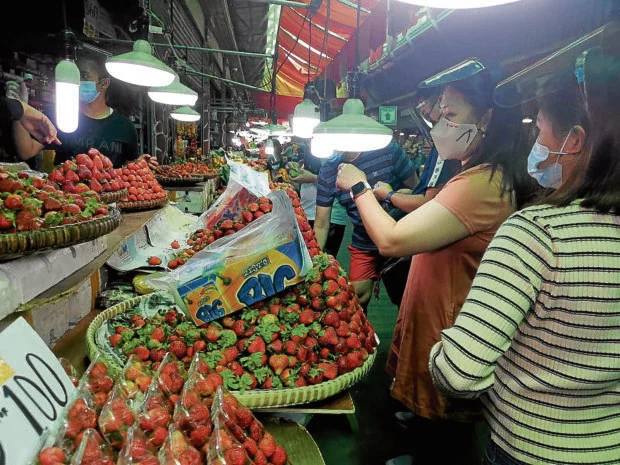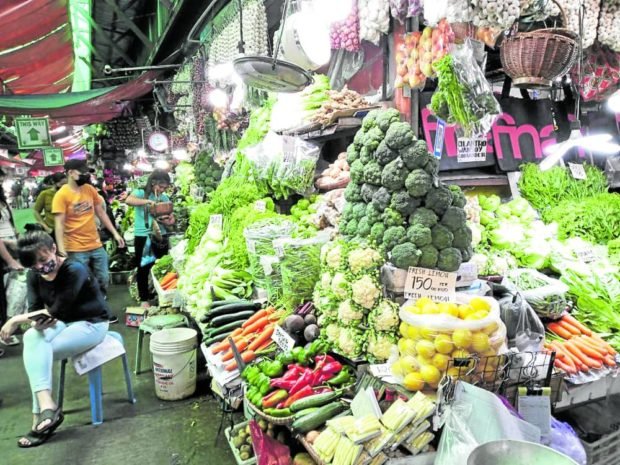Baguio market vendors going cashless

BAGUIO ‘PASALUBONG’ Fresh strawberries are among the popular “pasalubong” (gift) items that tourists buy at Baguio City’s public market. —EV ESPIRITU/File photo
Baguio City is pioneering the rollout of the “Paleng-QR PH” program that the Bangko Sentral ng Pilipinas is pushing, and which promotes cashless digital payments system in transactions between consumers and public market vendors and drivers of public utility vehicles.
Developed through a collaboration between the BSP and the Department of the Interior and Local Government (DILG), the program bolsters efforts related to financial inclusion and digitalization.
According to the BSP, the program also underscores the significance of local market purchases and transportation fares as basic components of a Filipino’s day-to-day payment pattern.
ADVERTISEMENT
Last June, the BSP and DILG issued a joint memorandum circular which is aimed at institutionalizing and promoting the implementation of Paleng-QR Ph by local government units across the country.
BSP Governor Felipe Medalla said this was not the first effort of the city government in terms of promoting cashless payments.
Oil prices fall as recessionary worries weigh on demand outlook
Ayala CEO Fernando Zobel de Ayala takes medical leave
DITO’s losses pile up even as revenues rise
“Baguio City’s strong digital transformation strategy makes it an even stronger champion for digital finance,” Medalla said.
Paleng-QR PH was launched with help from financial service providers, which assisted market vendors and shop owners in opening transaction accounts and printing quick response (QR) codes for their stalls.
“We we look forward to everyone’s support for the successful implementation of this program- not just in Baguio but all throughout the Philippines,” Medalla said.
The city council has passed on first reading a proposed ordinance that provides an incentive to all business owners who shall provide QR PH as an alternative mode of payment.
Under the ordinance, participating market stall operators get a five-percent discount on all fees, licenses, permits or taxes in the first three years of the Paleng-QR PH program. The discount also applies to stall rental or rights in the first year of adoption.

A stall at Baguio City public market offers newly harvested vegetables from farms in Benguet province. —ALLAN MACATUNO/File photo
Also, the joint memo between the BSP and the DILG mobilizes local government units (LGUs) to promote digital payments among vendors, sari-sari store owners, tricycle drivers, consumers and commuters.
According to the BSP, the program was developed during the fourth quarter of 2021. It is part of efforts to foster financial inclusion across the country and build economic potential for LGUs.
ADVERTISEMENT
Market vendors and tricycle drivers will get support in opening a transaction account which will allow them not only to use digital payments. They will also access formal financial services that are suited to their needs and capabilities, including credit, insurance and investment.
Vendors and drivers who accept QR PH payments can meet the needs of digital savvy customers who prefer to use digital over cash for convenience and health reasons, and be able to enjoy the conveniences of going digital at the same time.
Further, digital payments are considered helpful to vendors and drivers in reducing risks of theft and counterfeit bills.

Read Next
Oil prices recover from 6-month lows after drop in U.S. stockpiles
EDITORS’ PICK
MOST READ
Don’t miss out on the latest news and information. 
View comments


